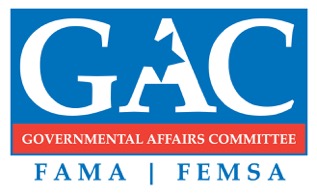By Dave Gatton, GAC Senior Consultant
It seems this summer we have hit a tipping point in the Fire Service. On the first responders’ new agenda is to be first on the nation’s front lines to protect against the intensity of climate change. Fires, suffocating heat, drought, and hurricanes are more intense than ever before. This was foreseen. The last nine years have been the hottest on record in the earth’s history. It is tragic for those who have lost their lives, been made homeless, or seen their communities burn. But our first responders bear the immediate brunt of fighting this new age of natural disasters. Even the national guard is now in the picture.
All the more reason for Congress to pay closer attention to the two main fire grant programs, the Assistance to Firefighters Grant program (equipment) and the SAFER program (personnel). The programs have been flat funded for five years, lessening their purchase power. In appropriations bills reported out of committee, the House flat funded AFG and SAFER at $360 million each; the Senate, for some unexplained reason, cut each program by over 6 percent to a level of $338 million.
In the meantime, slightly different reauthorization bills for AFG and SAFER have passed the House and the Senate. With the arcane rules of the Senate, a pathway now must be found to move a bill to final passage. The AFG and SAFER programs hang in the balance as the sunset clause in their current authorization kicks in by year’s end (with a possible grace period extending into the spring).
Both issues will require the Fire Service coalition to “up the ante” and make their voices heard, and strongly. Call your Seantors, your Congressional delegation and anyone who will listen. The AFG and SAFER are needed now more than ever. The storms, drought, heat, floods and hurricanes will keep coming. It’s our new reality. We must make sure AFG and SAFER not only survive but are adequately funded.
